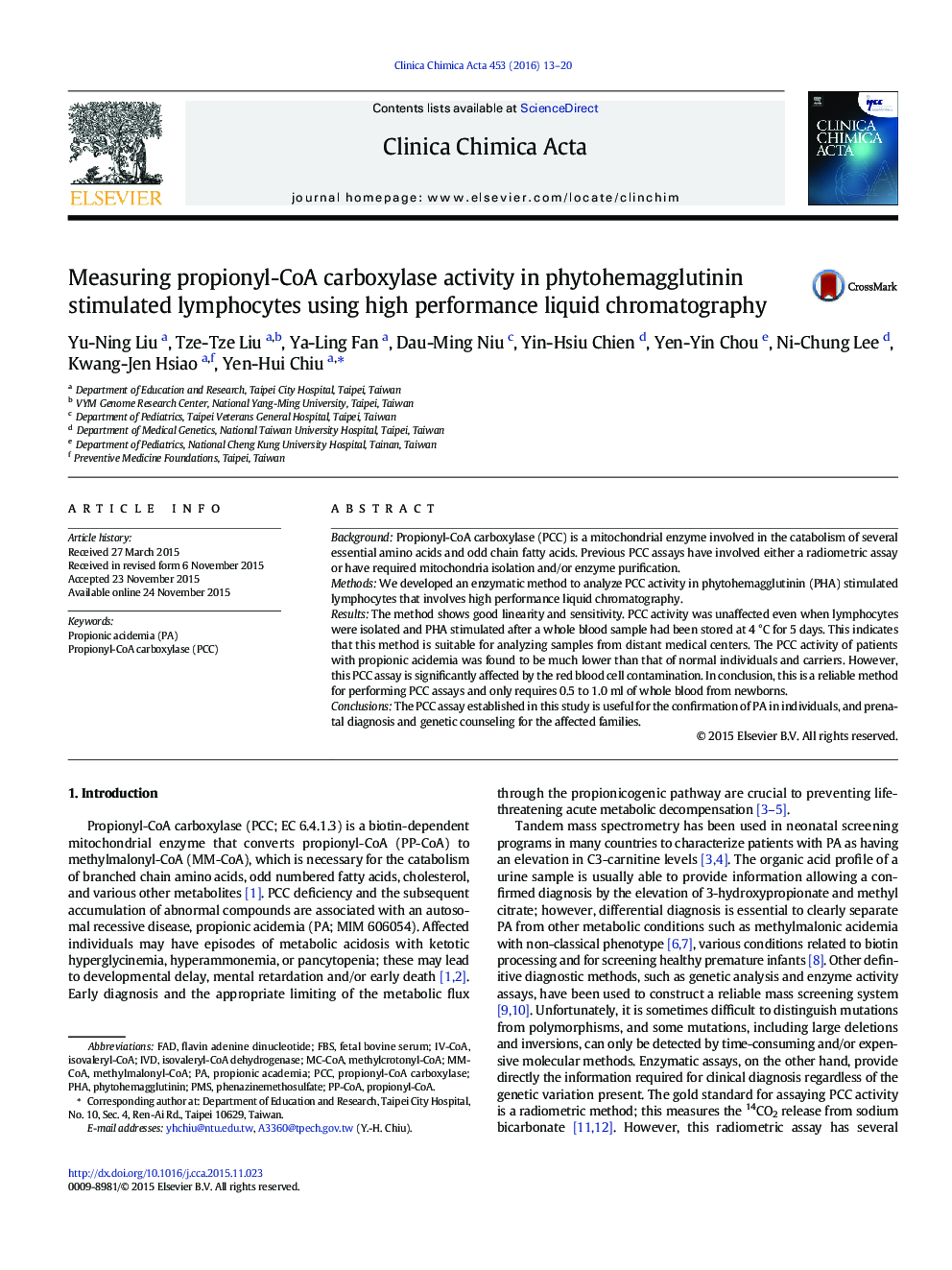| Article ID | Journal | Published Year | Pages | File Type |
|---|---|---|---|---|
| 1965128 | Clinica Chimica Acta | 2016 | 8 Pages |
•A nonradiometric and reliable manipulated method used for measuring PCC activity•PHA-stimulated lymphocytes were recommended as the subjects for PCC assay.•The PCC assay only requires 0.5 to 1.0 ml of whole blood from newborns.•This method is applicable for analyzing samples from distant medical centers.
BackgroundPropionyl-CoA carboxylase (PCC) is a mitochondrial enzyme involved in the catabolism of several essential amino acids and odd chain fatty acids. Previous PCC assays have involved either a radiometric assay or have required mitochondria isolation and/or enzyme purification.MethodsWe developed an enzymatic method to analyze PCC activity in phytohemagglutinin (PHA) stimulated lymphocytes that involves high performance liquid chromatography.ResultsThe method shows good linearity and sensitivity. PCC activity was unaffected even when lymphocytes were isolated and PHA stimulated after a whole blood sample had been stored at 4 °C for 5 days. This indicates that this method is suitable for analyzing samples from distant medical centers. The PCC activity of patients with propionic acidemia was found to be much lower than that of normal individuals and carriers. However, this PCC assay is significantly affected by the red blood cell contamination. In conclusion, this is a reliable method for performing PCC assays and only requires 0.5 to 1.0 ml of whole blood from newborns.ConclusionsThe PCC assay established in this study is useful for the confirmation of PA in individuals, and prenatal diagnosis and genetic counseling for the affected families.
